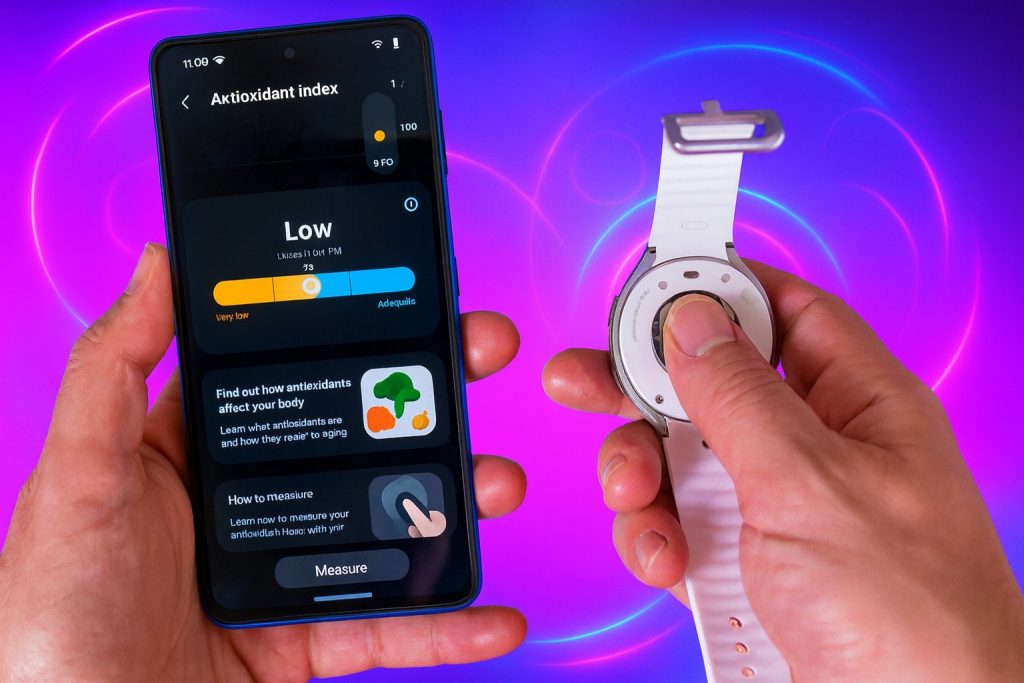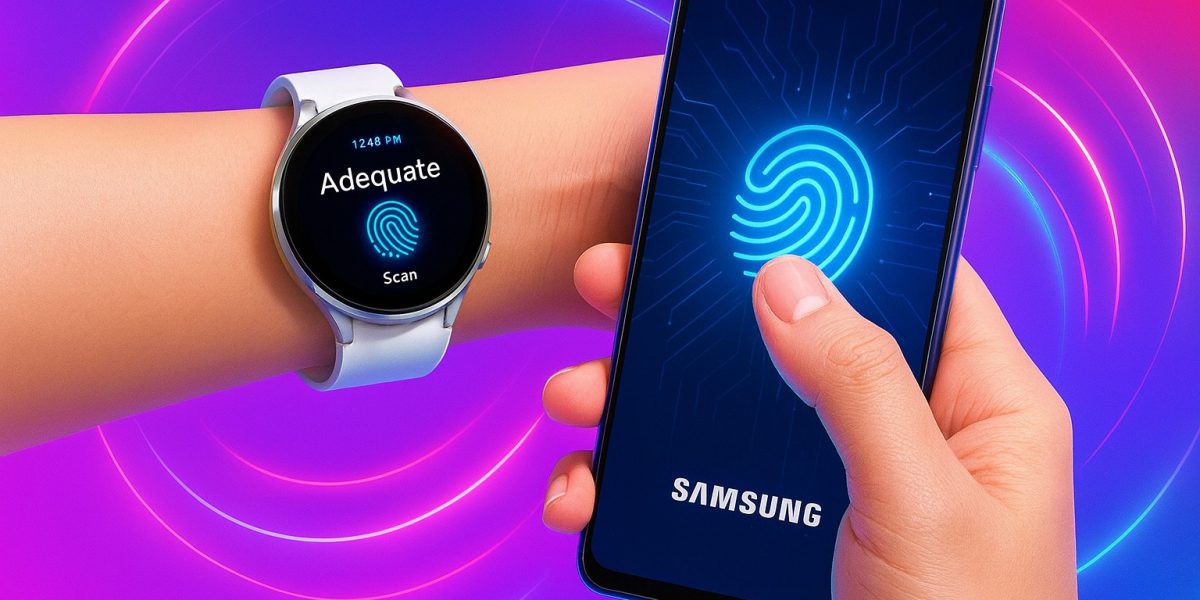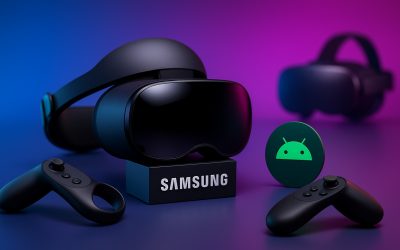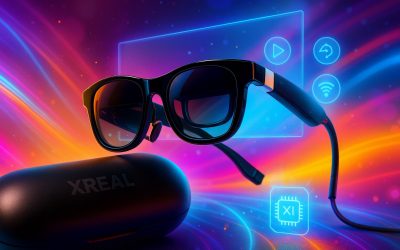Samsung has launched its Galaxy Watch 8 with a groundbreaking Antioxidant Index feature that transforms nutrition tracking from laboratory science into everyday wearable tech. This industry-first smartwatch capability measures carotenoid levels through a simple five-second thumb scan, giving users real-time insights about their fruit and vegetable consumption.
The feature represents the culmination of seven years of research and development in collaboration with Seoul National University and Samsung Medical Center, addressing a critical gap in wearable health monitoring. According to Samsung’s announcements this week, the technology miniaturizes laboratory spectroscopy into a coin-sized sensor that integrates seamlessly into the watch’s design.
How Samsung Shrunk Lab Equipment to Wrist Size
The Antioxidant Index employs multi-wavelength LEDs combined with a custom photodetector array to analyze how skin absorbs different light wavelengths. Unlike traditional Raman spectroscopy that relies on bulky laser machines, Samsung’s breakthrough integrates reflection spectroscopy with LEDs while maintaining lab-grade accuracy.
“Our breakthrough was integrating reflection spectroscopy with LEDs, which allowed us to miniaturize the technology while maintaining high accuracy,” explains Chinyeong Park, a developer on Samsung’s Digital Health team. The sensor analyzes carotenoids—natural pigments that give fruits and vegetables their red, yellow, and green colors—since the human body cannot produce these compounds independently.
To ensure accuracy across different skin tones, Samsung engineered the system to scan fingertips, where melanin levels are lowest across all ethnic groups. Users apply light pressure during scanning to temporarily reduce blood flow and minimize hemoglobin interference, resulting in more precise measurements.

Understanding Your Nutritional Status
The Galaxy Watch 8 translates carotenoid readings into three categories based on World Health Organization daily recommendations for consuming 400 grams of fruits and vegetables: very low (below 50%), low (50%-100%), and optimal (100% and above). Dr. Hyeji Chung from Seoul National University, who oversaw the technology’s development, notes that skin carotenoids accumulate gradually, with meaningful changes appearing after one to two weeks of consistent dietary intake.
“If antioxidant monitoring is neglected, reactive oxygen species accumulate in the body, increasing the risk of chronic diseases such as cardiovascular disease, diabetes, and cancer,” Dr. Chung explains. The feature integrates with Galaxy Watch8’s other health tracking capabilities, including sleep coaching, activity monitoring, and vascular load measurement, providing users with a comprehensive health overview.
Market Position and Availability
Samsung’s timing appears strategic as the company seeks to differentiate itself in the competitive smartwatch market, where it holds roughly 6% market share compared to Apple’s dominant 20% position. The Galaxy Watch 8, priced at $349.99 for the 40mm model and $379.99 for the 44mm version, launched in July 2025 and has received renewed marketing attention throughout October.




Post a comment